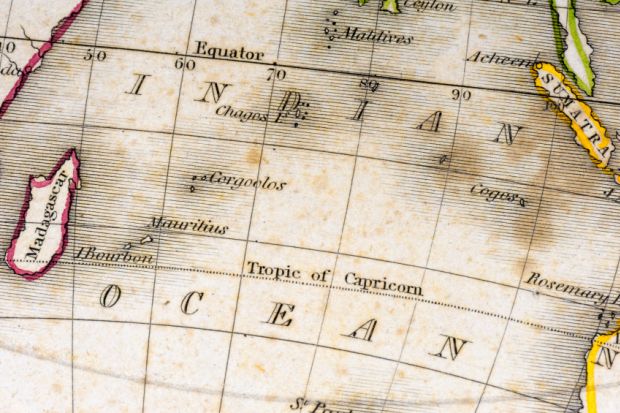Who could have imagined that London and the island of Mauritius would between them change the face of higher education the world over?
That’s exactly what happened 150 years ago through a collaboration between the University of London and the Royal College, Mauritius – a collaboration that merely set out to solve an immediate problem.
In 1864, CA Redl, the Rector of the Royal College, Mauritius, needed to find a consistent and reliable examination with which to test his students. Unable to find one in Mauritius, he wrote to the University of London for help through the Colonial Office in Downing Street. The University of London agreed with his suggestion, which was to treat the Royal College on the same basis as a UK provincial examination for matriculation and BA examinations.
Thinking about this suggestion now, it seems quite reasonable. Although recent technologies have allowed phrases like “global village” to become commonplace, it is actually rather difficult, if not impossible, to imagine how strange such an idea would have been in the mid-1800s and that the distance was perceived to be an insurmountable obstacle to examining in this way.
Today, we talk of hours of travel between London and Mauritius – 150 years ago, we would have been talking about months of travel. All this underlines the brilliance of CA Redl’s suggestion that the University of London extend its project of inclusiveness and open access across continents.
And so in spring 1865, 11 examination papers made the 19,328-mile round trip from London to Mauritius, allowing six of the 11 students who took them to pass and matriculate at the University of London in October of the same year. This event established the principles and precedents that led to the creation of the University of London International Programmes, then known as the External System, and that made distance and flexible learning a global success as we know it today.
The University of London continues its relationship with Mauritius today and has just under 500 students, all of whom will sit their examinations in Mauritius with the Mauritius Examinations Syndicate.
And, of course, the 500 students in Mauritius are part of a cohort of just under a million students worldwide – 54,000 students on full study programmes in 180 countries, and 922,000 studying free short Moocs through the Coursera online platform. Again, this makes the International Programmes the largest classroom in the world.
The University of London International Programmes enables students to study for prestigious University of London qualifications without leaving their home countries.
Students studying through the International Programmes have gone on to win Nobel Prizes in Peace, Literature, Science and Economics. Examples include Nelson Mandela and Charles Kao, who was instrumental in transforming how we communicate through his development of fibre optics. Our students have made incredible contributions in shaping the world, and all this is thanks to the actions of CA Redl in Mauritius 150 years ago.
Sir Adrian Smith is vice-chancellor of the University of London.
Register to continue
Why register?
- Registration is free and only takes a moment
- Once registered, you can read 3 articles a month
- Sign up for our newsletter
Subscribe
Or subscribe for unlimited access to:
- Unlimited access to news, views, insights & reviews
- Digital editions
- Digital access to THE’s university and college rankings analysis
Already registered or a current subscriber?




